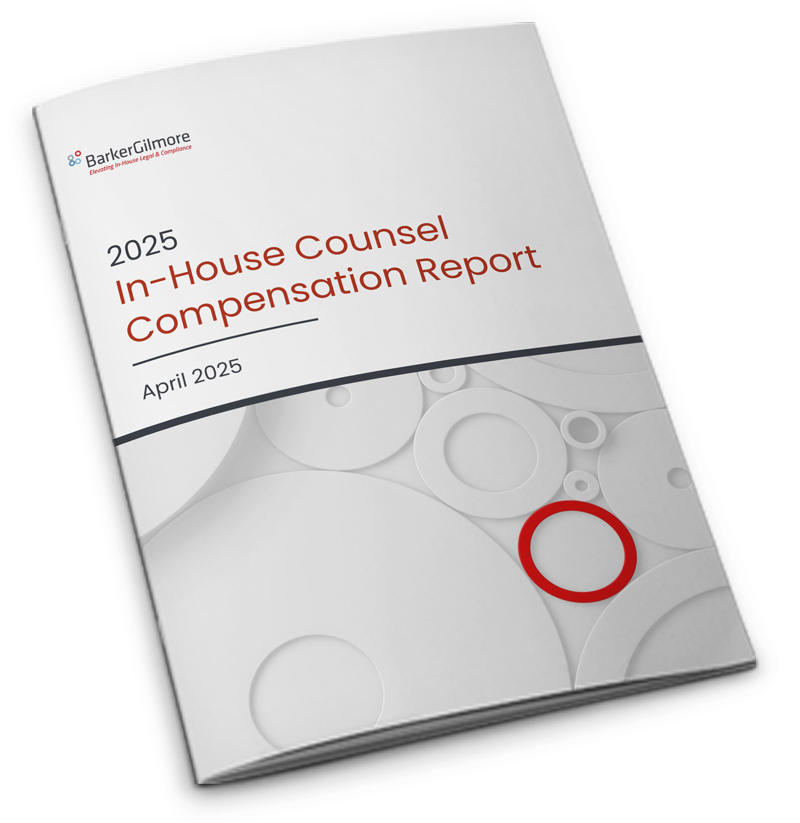Just as the new year begins, CEOs are sometimes blindsided by the resignation of a key player within their legal function. It may be a top talent within the in-house counsel or worse, the General Counsel. Regardless, the unexpected loss can cause operational turbulence unless a succession plan is in place to quickly and effectively fill the newly vacant role.
Ideally, you should be taking steps now to prepare for the unexpected. Unfortunately, succession planning tends to fall to your “important but not urgent” list, so you may be left without a plan of action when you need it most.
Here are five steps to take when you’re surprised by a resignation in your law department.
1. Establish the Resigner’s Exit Strategy
Though a two-week notice is generally the norm, those resigning from leadership roles in your law department should provide notice a month or more in advance. This is a detail you must know up-front, as it will determine how the rest of your timeline unfolds.
Additionally, input from the individual resigning may be paramount to finding the next best fit for his or her position, so you’ll want to capitalize on their remaining time with the company.
2. Involve Key Stakeholders
Especially when dealing with the resignation of the General Counsel, involve key stakeholders in the succession process. They are most familiar with the health and needs of the company and can provide vital perspective when defining the characteristics and skills necessary of the successor.
3. Look Internally for a Successor First
Consistently maintain an idea of who the rising talents are within your company and tap into that list the moment a surprise resignation occurs. Hiring from within is faster, easier and less expensive than recruiting from outside the company. Internal talents may be able to seamlessly resume responsibilities of the resigner or may require supplementary training, but their familiarity with company operations and culture provides a sizable advantage.
4. Be Prepared to Hire Externally
If your company must look externally for a successor, have a process in place for efficiently recruiting, reviewing and interviewing candidates. This process should include a timeline for executing each phase of the hiring process in addition to a thorough description outlining the characteristics and skills your ideal candidate must have.
Also, be prepared to look beyond traditional talent pools to identify rising talent in the job market. Most candidates who aren’t actively seeking a job are open to having a conversation, but you have to dig deeper to identify them and use a unique approach to attract them. In recruiting terms, these are known as passive candidates.
5. Partner with a Team of Experienced Legal Recruiters
When you’re starting your recruiting efforts from scratch, hiring your next General Counsel, Chief Compliance officer or in-house counsel can take six months or longer. A headhunter that specializes in recruiting legal and compliance candidates will empower you to fill vital roles in half that time.
Top legal recruiting firms can quickly tap into their network to identify high quality candidates and apply years of expertise to roll out a hiring process with built-in quality assurance. This will alleviate the stress that otherwise falls on the shoulders of the hiring manager and save you time.
BarkerGilmore’s team of national legal recruiters have the industry expertise and established networks to recruit in-house counsel and compliance officers who aren’t actively looking. We use a customized recruiting process we’ve fine-tuned, and we guarantee results.
To learn more about how you can plan ahead so you won’t be surprised by an unexpected GC resignation, download our guide, 7 Steps You Should Be Taking Now to Find Your Next GC.
Connect with a legal recruiting advisor
* indicates required fields



